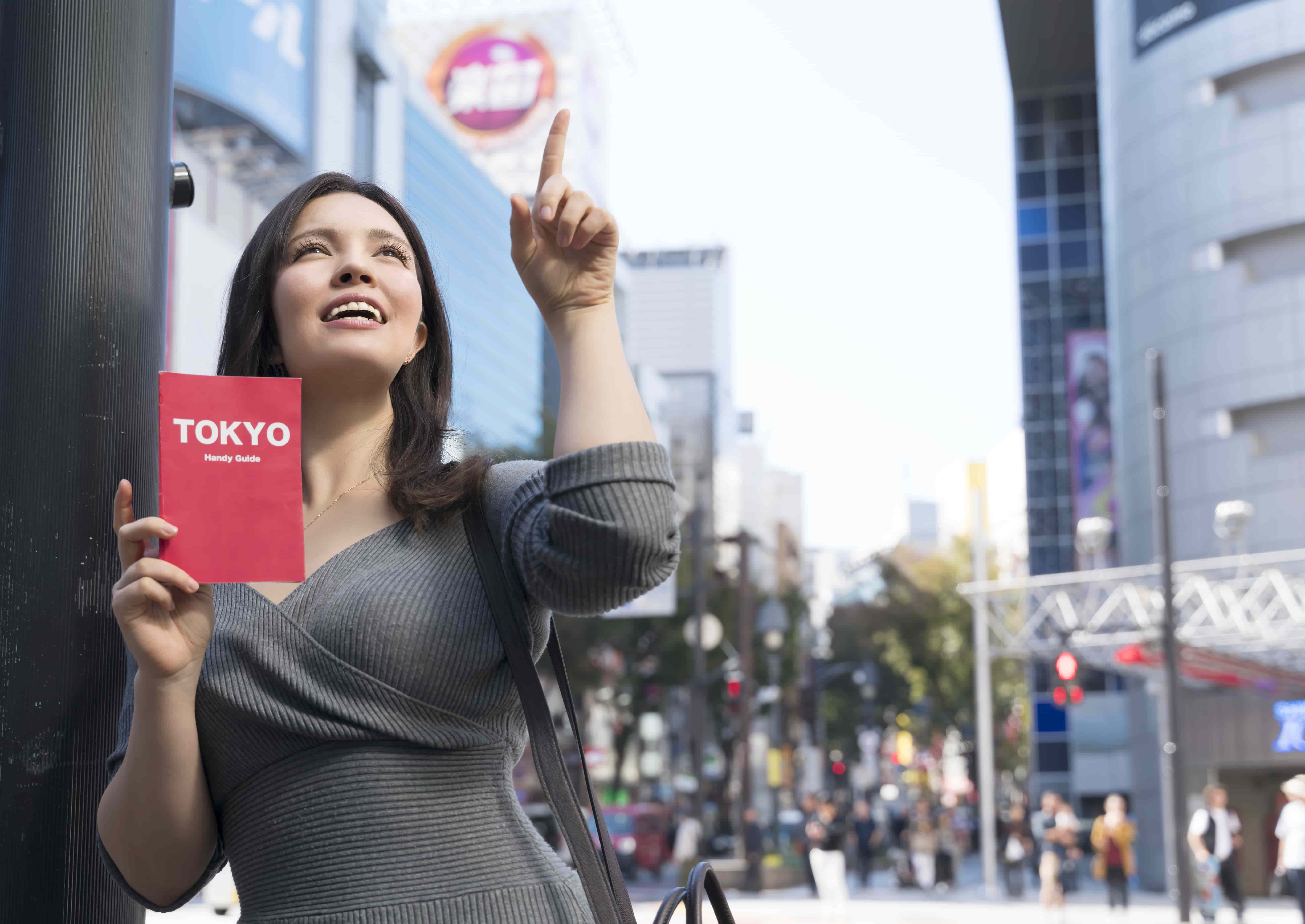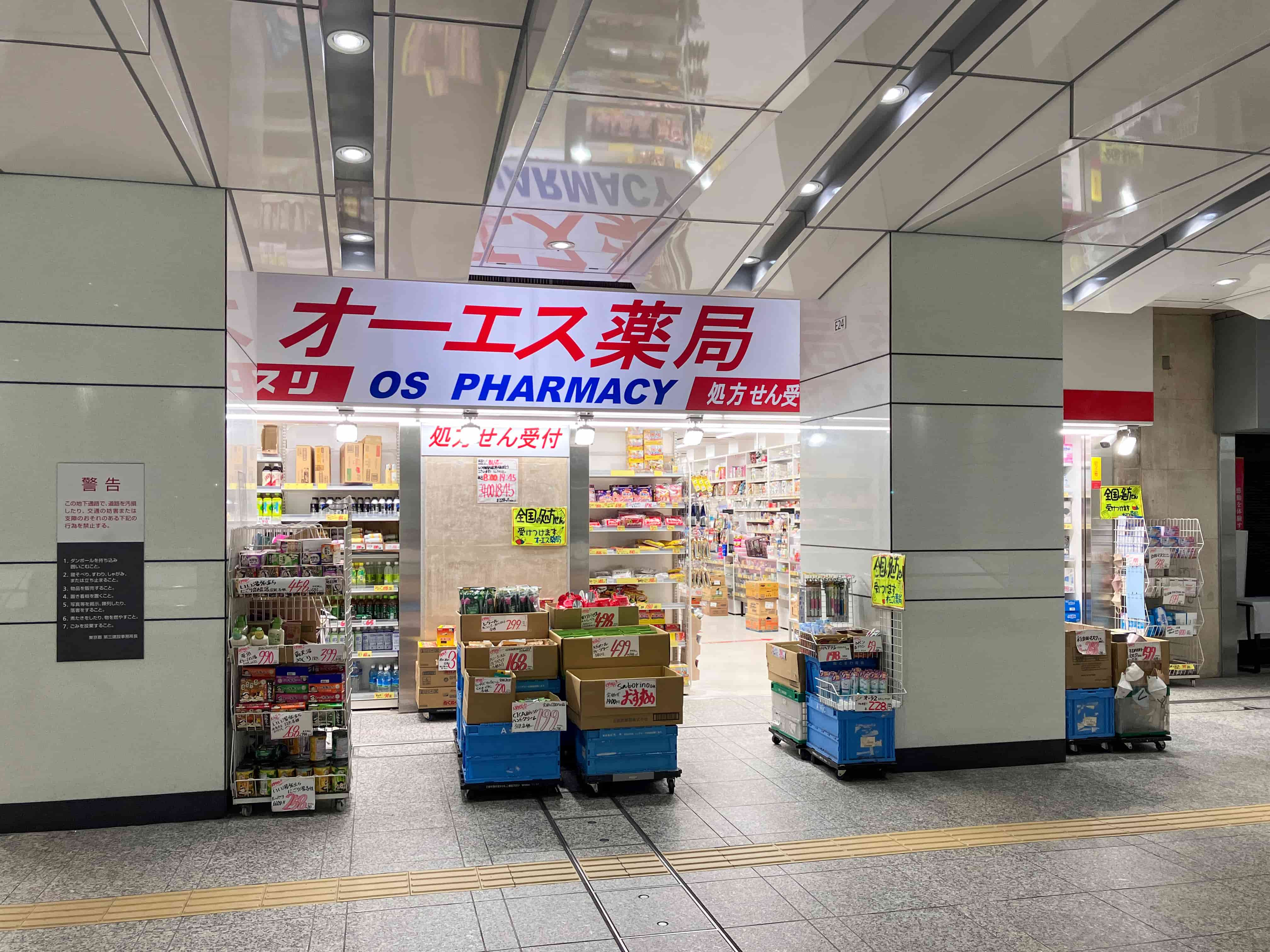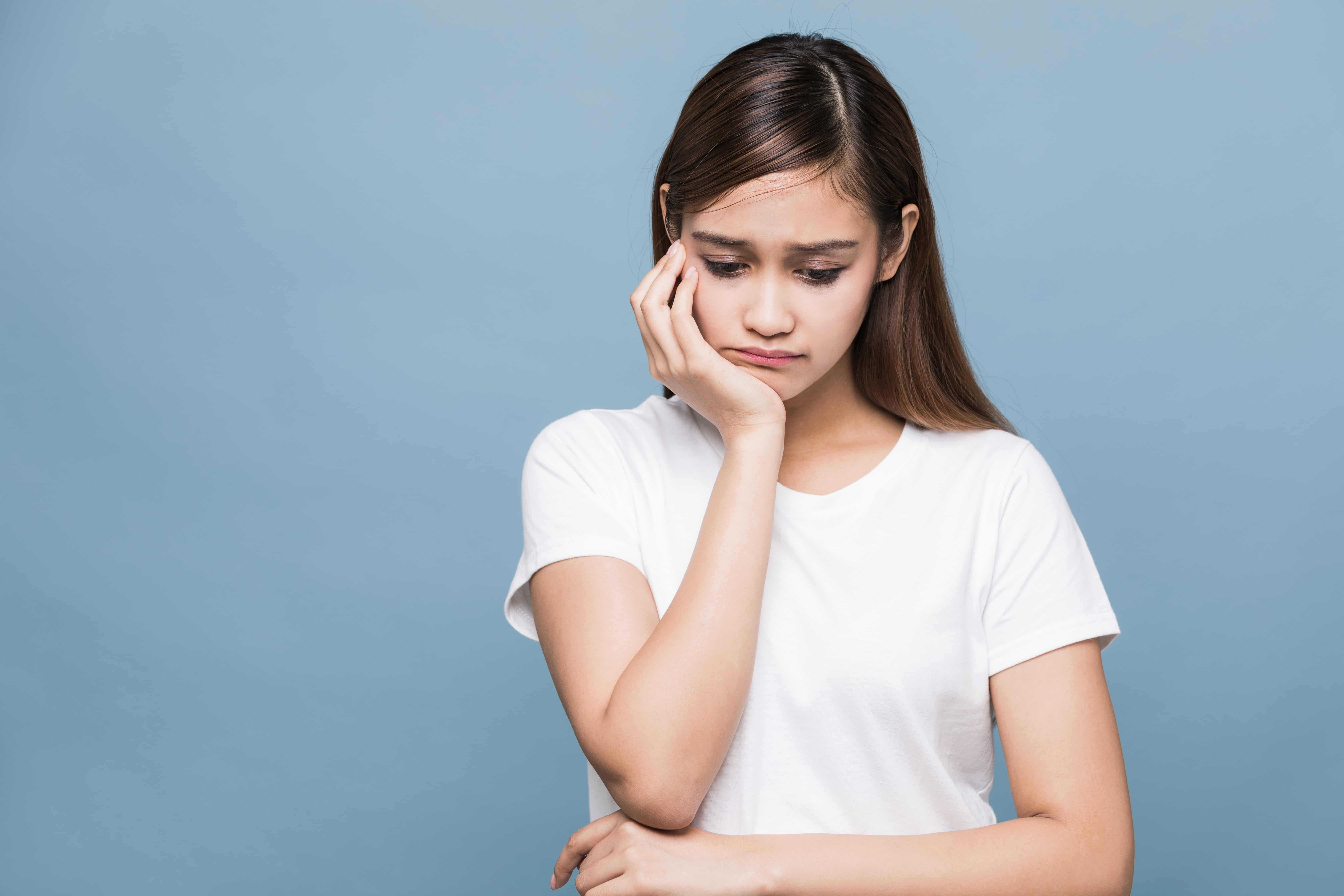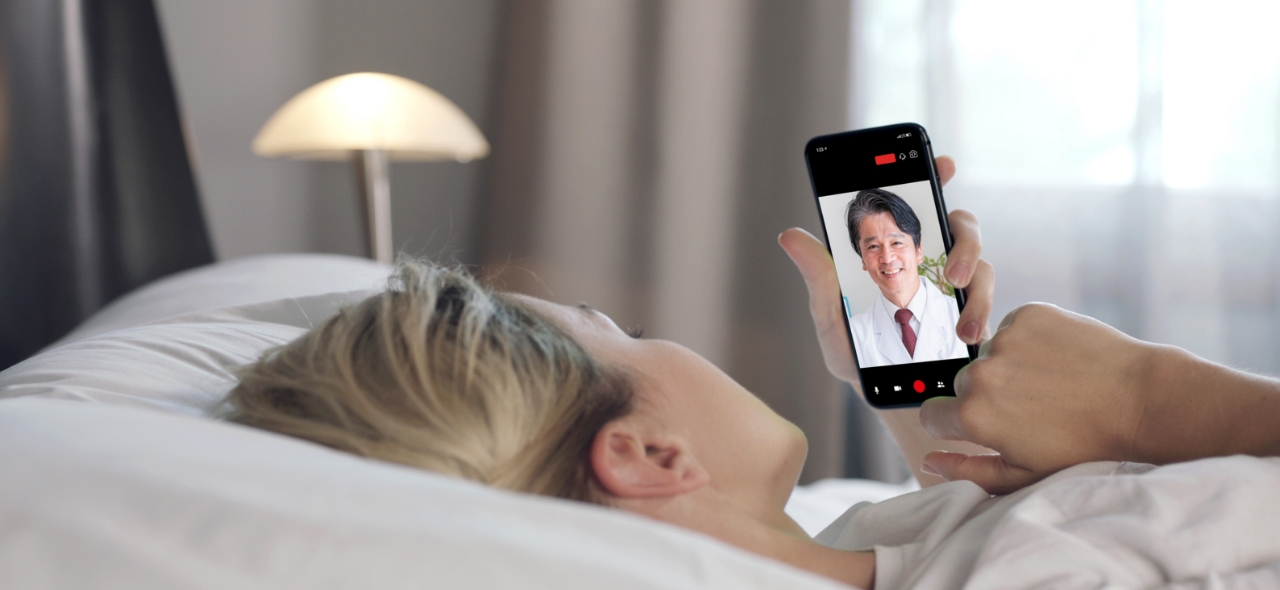How Can Foreigners Buy Medicine in Japan? A Clear Explanation of Over-the-Counter and Prescription Drugs

Are you planning a trip to Japan? Or are you already having a wonderful time in Japan? We are sure you are enjoying the delicious food, wonderful scenery, and Japanese culture. However, staying in an unfamiliar place can easily make you feel unwell. You may be worried about what to do if you suddenly experience a fever, sore throat, or stomach ache.
"I can't find the medicine I always buy back home at a Japanese pharmacy..."
You may be faced with such a situation. In fact, Japan has its own rules for medicine. In this article, a nurse provides an easy-to-understand explanation of how to buy medicine in Japan, which will be useful if you get sick while traveling.
Japanese medicines are divided into "over-the-counter" and "prescription" drugs

Japanese medicines are broadly divided into two types:
- Over-the-counter (OTC) drugs: Medicines that can be bought at pharmacies and drugstores without a doctor's prescription.
- Prescription drugs: Medicines that cannot be bought without a doctor's consultation and prescription.
Even if a drug is available as an over-the-counter drug overseas, it is not uncommon for it to be available only as a prescription drug in Japan. Knowing this difference is the first step to avoid panicking in an emergency.
What are over-the-counter (OTC) drugs? Where can I buy them?
OTC stands for "Over The Counter," meaning that the medicine can be bought over the counter. Many of them are used for relatively mild symptoms, such as cold medicines, painkillers, gastrointestinal drugs, and poultices, and they can be purchased at a nearby pharmacy or drugstore.
However, Japanese pharmacies are staffed by professional pharmacists, and when you purchase medicine, you may be asked to describe your symptoms and check for any medications you are taking or allergies you may have. Not all pharmacists speak English, so it is a good idea to write down what you want to tell them in advance.
What are prescription drugs? Why do I need to see a doctor?
Prescription drugs are more effective medicines that are prescribed by a doctor based on a comprehensive assessment of the patient's symptoms, constitution, and medical history. These include antibiotics and therapeutic drugs for specific diseases. Because they are prescribed based on professional knowledge, the risk of side effects is also taken into consideration. A doctor's consultation is essential for the safe use of medicines.
Case Study: Mr. A
Mr. A was visiting Japan from overseas. He ran out of the headache medicine he usually takes, so he went to a nearby pharmacy to buy some.
As he looked at the various products on the shelves, he looked for the headache medicine he wanted, but he could not find it. He asked the pharmacist, who told him, "I'm sorry, but we can't give you that medicine without a doctor's prescription." Mr. A was very surprised.
For Mr. A, he thought that all pharmacies were the same, so he could not understand why he could not buy the medicine.
Explanation: How Japanese pharmacies work
The pharmacy that Mr. A visited was probably a "dispensing pharmacy." There are two main types of pharmacies in Japan.
1. Dispensing pharmacies
- These are specialized pharmacies that dispense and provide medicines based on "prescriptions" issued after a doctor's consultation.
- Without a prescription, they cannot, in principle, provide you with any medicine, even if you are taking it regularly.
2. General pharmacies (drugstores, etc.)
- These are pharmacies that handle so-called "over-the-counter drugs" that can be purchased without a prescription.
- They mainly handle medicines for relatively mild symptoms, such as cold medicines, painkillers, and gastrointestinal drugs.
Why do I need a doctor's consultation for prescription drugs?
The headache medicine that Mr. A wanted to purchase probably falls into the category of "prescription drugs (ethical drugs)." While prescription drugs are highly effective, they also carry the risk of side effects, so the professional knowledge and judgment of a doctor are essential.
The doctor will prescribe the right medicine for the person by comprehensively judging the patient's symptoms, constitution, other illnesses, and past medical history. This maximizes the effectiveness of the medicine and ensures its safety.
When a Japanese pharmacy tells you that "we cannot give you medicine without a prescription," it is an important rule that puts your safety first. We appreciate your understanding.
When should I use over-the-counter drugs? When do I need a prescription?

When you are not feeling well, it is hard to know which medicine to choose. Here is a simple guide:
| Option | Advantages | Disadvantages |
|---|---|---|
| Over-the-counter drugs |
• Readily available • No doctor's consultation required • Relatively inexpensive |
• May be less effective • It may be difficult to consult in English • The medicine in Japan may not be suitable for you |
| Prescription drugs (in-person consultation) |
• You can receive a professional diagnosis and treatment • You can get a prescription drug that suits your symptoms • You can feel at ease because you can see a doctor |
• You can't get it without seeing a doctor • It is difficult to find a medical institution • Waiting times can be long • An interpreter may be required • There is a lack of transparency in fees |
| Prescription drugs (online consultation) |
• Not bound by time or place (consultation possible from your hotel) • The prescription can be sent to a nearby pharmacy • A medical certificate can also be issued |
• Not suitable for serious symptoms or injuries • Examinations and palpation are not possible • There are some medicines that cannot be prescribed for first-time consultations (such as psychotropic drugs and corticosteroids) |
| Ambulance (119) |
• Responds quickly in emergencies • Transports you to a specialized medical facility |
• Should not be used except in emergencies • There is a possibility of not being transported |
Sore throat, stuffy nose, and mild cold symptoms can be treated with over-the-counter drugs
- "My throat feels a little scratchy..."
- "I have a slightly runny nose and I'm sneezing."
- "I have a slight headache."
For initial cold symptoms or mild discomfort, you can try over-the-counter drugs. Consult with a pharmacist at the pharmacy to choose the one that suits your symptoms. Many tourists seem to try over-the-counter drugs at this stage.
Call an ambulance for acute illnesses or symptoms requiring treatment
- Unbearable chest pain
- Unconsciousness
- Difficulty breathing
- Convulsions
In case of symptoms with high urgency such as severe chest pain or vomiting blood, or injuries such as broken bones, you need to call an ambulance (119) immediately.
For fever, infectious diseases, and severe stomach aches, get a prescription (online consultation)
"My symptoms are getting worse, but I don't know if I should go to the hospital." "I don't know where the hospitals are in Japan or how to get there."
In such cases, you have the option of using an online medical consultation service.
You can consult a doctor from your hotel using a smartphone or computer, so there is no need to travel.
In an online consultation, the doctor will listen carefully to your symptoms. If necessary, they can also issue a medical certificate or fax a prescription to a pharmacy near your hotel. An online consultation will also help ease your anxiety.
For fever, infectious diseases, and severe stomach aches, get a prescription (visit a medical institution)
- High fever (38 degrees Celsius or higher)
- Severe cough
- Severe stomach ache, diarrhea, or vomiting that continues
- Severe general malaise
- Suspected infectious disease such as influenza
In such cases, over-the-counter drugs may not be sufficient. Do not overdo it and be sure to see a doctor at an appropriate Japanese medical institution.
Problems foreigners face when seeing a doctor in Japan

You may face several hurdles when you see a doctor at a Japanese medical institution.
Language barrier when talking to the receptionist or doctor
At the hospital reception, communication can be difficult and time-consuming, and misunderstandings can occur during procedures such as submitting your health insurance card, filling out a medical questionnaire, and confirming your appointment.
It is also a major hurdle to accurately convey your physical condition and symptoms during the consultation.
Furthermore, many foreigners feel that they cannot provide a sufficient explanation for an appropriate diagnosis and treatment because it is difficult to express specialized medical terms and subtle nuances in Japanese.
I don't understand the appointment and payment system
For foreigners, the appointment and payment systems of Japanese medical institutions often seem complicated.
Even for making an appointment, the methods vary from hospital to hospital, such as by phone, online, or in person, and it can be confusing to know which method to choose.
In addition, as for payment, cash payment is mainstream at many medical institutions, which is inconvenient for those who are used to cashless payments.
Furthermore, if you are not enrolled in Japan's public health insurance, you will be responsible for the full cost of medical care, and you may be surprised by an unexpectedly high bill.
These opaque systems are a major source of anxiety for foreign patients and are one of the factors that prevent them from using Japanese medical institutions.
Inconvenient location
For foreigners, the inconvenient location of Japanese hospitals is a major issue.
Especially in rural tourist areas and suburbs, there are few multilingual hospitals with doctors and staff who can speak English, making it difficult to find an appropriate medical institution immediately in case of sudden illness.
In addition, public transportation is limited in rural areas, and it is not uncommon for hospitals to be located far from train stations and bus stops.
For foreigners who are not familiar with the area and are not accustomed to the Japanese language, it is difficult to accurately convey their destination when using a taxi, and they may have trouble getting to the hospital.
These geographical problems are a major barrier for foreigners to use Japanese medical care with peace of mind.
Waiting time for consultation
For foreigners, the "waiting time for consultation" at Japanese hospitals is a major source of stress.
At many medical institutions, even if you have an appointment, it is common to have an appointment for a time slot such as "from XX:XX to XX:XX," and it is not a strict time designation, so it is not uncommon to wait for a long time.
In addition, the Japanese culture of casually visiting a doctor even for minor symptoms also leads to an increase in the number of patients and longer waiting times.
This makes it difficult for foreigners to predict the waiting time and makes it difficult to make plans for after the appointment.
Furthermore, waiting for a long time in an unfamiliar environment where the language is not understood increases the mental burden.
This waiting time is one of the major hurdles for foreigners when using Japanese medical institutions.
For online medical consultation in Japan, HOTEL de DOCTOR 24 is a safe choice

If you get sick while traveling in Japan, it is important to first assess the severity of your symptoms. For mild symptoms, try over-the-counter drugs at a pharmacy. For severe symptoms, do not hesitate to consult a doctor. If you are worried about communicating in Japanese, there are services like HOTEL de DOCTOR 24 that provide medical interpretation in 22 languages, 24 hours a day, 365 days a year.
We sincerely hope that you enjoy a healthy and wonderful trip from start to end.
HOTEL de DOCTOR 24 is an online medical consultation service that supports 22 languages. You can consult a doctor 24 hours a day, 365 days a year, so you can use it with peace of mind in case of a sudden illness while traveling.
For more information, see here:
References
- Ministry of Health, Labour and Welfare "About the personal import of pharmaceuticals, etc."
- This is a document from a public institution that describes the rules for individuals bringing medicines into Japan from overseas.
- Pharmaceuticals and Medical Devices Agency (PMDA)
- This is the website of a public institution that reviews pharmaceuticals and medical devices, provides safety measures, and provides information.
- Survey on Cashless Payment in Medical Institutions | Japan Medical Association
Disclaimer: This article is for informational purposes only and does not constitute medical advice. Always consult with a qualified healthcare professional for diagnosis and treatment of medical conditions.
